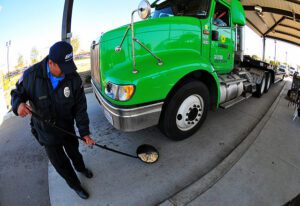
MC Numbers Going Away, But Not In January
UPDATE 1/17/17: The FMCSA announced that it is temporarily putting on hold the effective date for EXISTING carriers and brokers

UPDATE 1/17/17: The FMCSA announced that it is temporarily putting on hold the effective date for EXISTING carriers and brokers
As of this week, the ELD mandate is one year away. That means that after December 17, 2017, all heavy-duty
Ten days before the start date of sweeping new overtime rules, a U.S. District Court judge slammed on the brakes.
Got questions about how to stay compliant with the upcoming ELD mandate? You’re not the only one. At the Commercial
New overtime rules set to take effect on December 1 are being challenged on multiple fronts. Recently, 21 states filed

There’s a brake inspection blitz happening this week, which also just so happens to be National Truck Driver Appreciation Week.
Got some trailers that need replacing? Prices for new ones are probably going to jump up soon. Phase 2 of
Got some trailers that need replacing? Prices for new ones are probably going to jump up soon. Phase 2 of
UPDATE 1/17/17: The FMCSA announced that it is temporarily putting on hold the effective date for EXISTING carriers and brokers

Employers have just six months to comply with new overtime rules from the U.S. Department of Labor that were finalized
Your payroll expenses might take a big hit this December. That’s when a new law will change how overtime pay
Have you switched to driver e-logs? It’s been a few months since the ELD mandate was made official. Carriers and